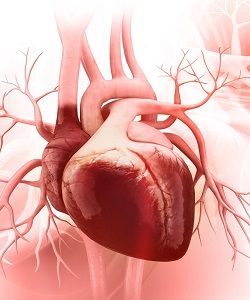Cleveland Clinic Cardiac Specialist Talks About TV Fitness Guru Bob Harper's Heart Attack: Could It Have Been Predicted?
Steven Nissen, MD, says that heart attacks in fit people are not unusual.
MD Magazine asked Steven Nissen, MD, a cardiologist at Cleveland Clinic in Ohio, for more insight on myocardial infarctions in fit, seemingly healthy people. (His answers were edited for space.)
Editor’s Note: The news broke on February 27 that 51-year-old Bob Harper, “The Biggest Loser” reality show host and personal trainer, had suffered a heart attack two weeks earlier while working out at a gym in New York City. Harper reportedly was transported to a hospital and was unconscious for two days, spending a total of eight days in the hospital. It’s also been reported that Harper’s mother died of a heart attack a while back.
There have been other cases of athletes, such as marathon runners, who seemed to be in a great shape then had heart attacks. Can these cases ever be predicted?
You can to some extent. The reality is that a heart attack in an athlete is not at all unusual and being physically fit by no means eliminates the risk. There’s risk calculators and they all take various risk factors into consideration and calculate a risk score. The one I use is the Reynolds Risk Score.
In Bob Harper’s case, it’s been reported that he was unconscious for two days following his heart attack — does that give any indication of how severe it was?
A heart attack can cause anoxic brain injury, or total lack of oxygen to the brain. In cardiac arrest, therapeutic hypothermia protects the brain and those people are typically kept unconscious. However, it’s unknown if that was done in Harper’s case.
How do genetics and family history come into play with cardiac arrest?
Family history is a fairly powerful risk factor. One disadvantage with the ACC/AHA guidelines is that they do not include family history as a risk factor—because they were never designed to do so. That’s why I use the Reynolds Risk Score, it includes family history.
Physicians tend to be particularly eager in people with family history to do everything they can to prevent myocardial infarction. With Bob Harper, all of that information isn’t available to the public.
Do healthy men or women have greater risk of spontaneous heart attack?
Sudden death and age-adjusted rate with myocardial infarction is slightly higher in men. Coronary heart disease is the leading death in men and women, but men are more like to have it at any age than women.
Is recovery different for patients who have a heart attack based on their health prior to the event?
With most health conditions, patients are more likely to do better if they were healthy and physically fit before the event. A couch potato who has a heart attack is almost always going to have a longer recovery.

There’s one thing they should not do—in no circumstances should healthy people undergo a stress test. Many false positives come about for every true positive, which is true for most of these kinds of screening processes. These tests are meant to look for disease, but turn out to be incidental. A non-clinical stress test can lead to non-clinical, inappropriate additional testing and intervention. What everyone should do, whether they exercise or not, is check their cholesterol, blood pressure, make sure they don’t have diabetes—and no smoking.
I would never recommend someone going from a secondary lifestyle to a high intensity program, and most physicians would advocate starting off slowly.
Can you, as a physician, ever certify that person is cleared to do regular, strenuous exercise or is there always a heart risk?
The risk can never be absolute. The reality is, the first symptom of coronary heart disease in two-thirds of men 50% of women, is heart attack or sudden death.
During a workout, are there things people can do to make sure they aren’t putting too much stress on the heart?
If you’re otherwise healthy, there is no definition that I’m aware of, of what too much stress is. People should work themselves up with exercise in a gradual function. If someone experiences symptoms, such as chest pain, the worst thing you can do is ignore it.
Some people wear heart monitors during exercise; do you see a lot of clinical benefit with that?
I see none. In my book, Heart 411: The Only Guide to Heart Health You’ll Ever Need, with Marc Gillinov, MD, we recommend that people don’t use heart monitors, we don’t see much benefit in them.
Step counters are good and I recommend them because they help keep people aware of how much they’re moving. But even those don’t have good science behind them. I tell my patients to exercise to the level they are comfortable with.
Do you expect reports of cardiac events, such as a healthy celebrity’s heart attack, will discourage people from going to the gym?
No, it’s a teachable moment. It could encourage people to adopt a healthy lifestyle and not stop them from being physically active. You can’t prevent all risk of heart attack, but you can reduce the probability of heart attack.
On the road to recovery. Required to wear these monitors for a while. Thank you all for your kindness. You have no idea how much it helps. ⤠pic.twitter.com/elK68VbhC5
— Bob Harper (@MyTrainerBob) February 28, 2017
Everyone needs to understand that we need to counsel our patients when we see symptoms. Sometimes people start having chest pain when they exercise; if these people ignore it, the next time it can be a heart attack. Physicians need to be proactive in encouraging their patients to report these occurrences.